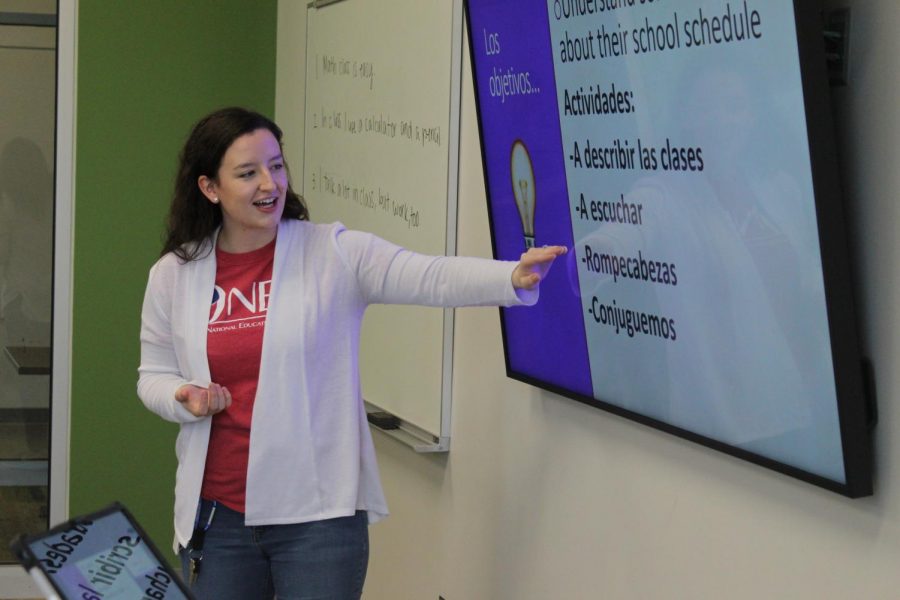Opinion: Facilitating Change Through Conjugation
Why Foreign Language Classes Will Change Your Life
Spanish teacher Anna Nondorf teaches her spanish one class to speak about their classes.
December 10, 2019
Many students tend to avoid taking a foreign language or just take it for the credit needed for capstone requirements. What these students don’t realize is the magnitude of benefits they are missing by doing this.
A foreign language class doesn’t teach you how to succeed in a career or how to write with perfect grammar. What a foreign language class teaches you is how to understand the language, the people, and communities where the language is spoken.
“We gain compassion and we can try to understand and have empathy towards other cultures by understanding how they live their world which can be different from our world,” said Spanish teacher Karen Detrixhe.
During a foreign language class, teachers are not only there to facilitate the learning of syntax, grammar, and conjugation. They are also there to show you the culture you find in these places, whether it be Tuesday the Thirteenth or La Tomatina, both in Spain).
Learning the language is not only invaluable to the course, but it allows you to build connections with people who don’t speak English. This is seen often in the business world, as according to AOL, 64% of business executives speak two or more languages with about half of them speaking three. Business executives do this because they know companies will prefer to negotiate and communicate in their native tongue. An example of someone who does this is Mark Zuckerberg. He learned how to speak Mandarin knowing it was a major asset for expanding business overseas.
Foreign languages not only help you learn how to communicate and interact with people different from yourself, but it also provides the opportunity for major academic growth in all areas of study.
“There are a lot of benefits of learning a foreign language,” said Detrixhe. “Research has shown that cognitively you can expand your knowledge of not just your lexicon.”
College board had a study comparing average SAT scores to the years of a foreign language students had taken and found a positive correlation. As of 2016, students with no foreign language had an average critical reading score of 425 and an average math score of 452. Alternatively, students who had taken five or more years had an average critical reading score of 550 and an average math score of 576.
“There are many words, cognates that sound similar. English has a lot of Latin based language that tends to be of a higher register,” said Detrixhe.
One reason reading scores increased by an average of 125 for critical reading in 2016 from zero years to five or more years of a language may be the register of the words used on standardized testing.
You simply cannot ignore the benefits that can come from taking a foreign language course in combination with other curricular courses. I urge all of you to keep taking a foreign language for more than just the applied communications credit.








